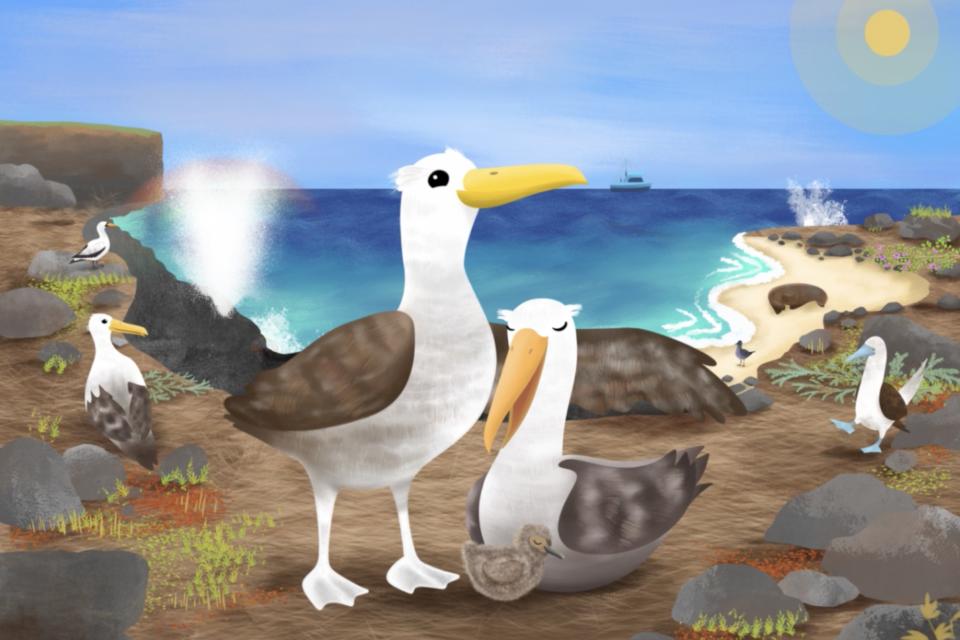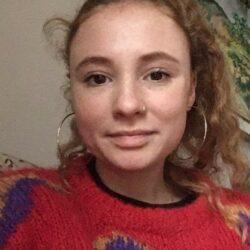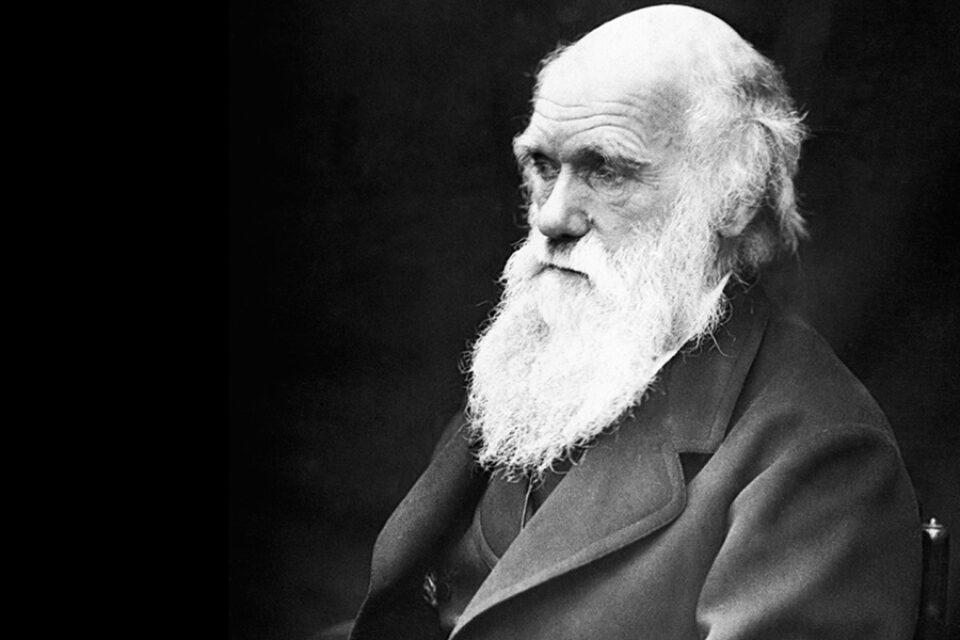

One woman’s mission to connect families with gardening and endemic plant conservation
Ashleigh Klingman, founder of Education 4 Nature Galapagos, discusses creating a community gardening project during the pandemic and how connecting people with nature strengthens conservation ethics.
Can you give a brief overview of the Urban Family Gardening project and what it hopes to achieve?
The project began during the COVID-19 pandemic to help families channel their extra energy and time into improving their health through growing organic produce and conserving the Islands by learning about endemic plant species that are in danger of extinction. From the beginning, the project was designed with local educators, and thus, the underlying goal was to design a community project that evolved with community needs.
In 2024, the project will focus on supporting teachers by creating extracurricular activities, leadership programmes and sustained processes to use the creative literature tools we have developed with teachers and local students. All of these activities will help strengthen the skills that students should attain under the Galapagos Contextualised Curriculum.
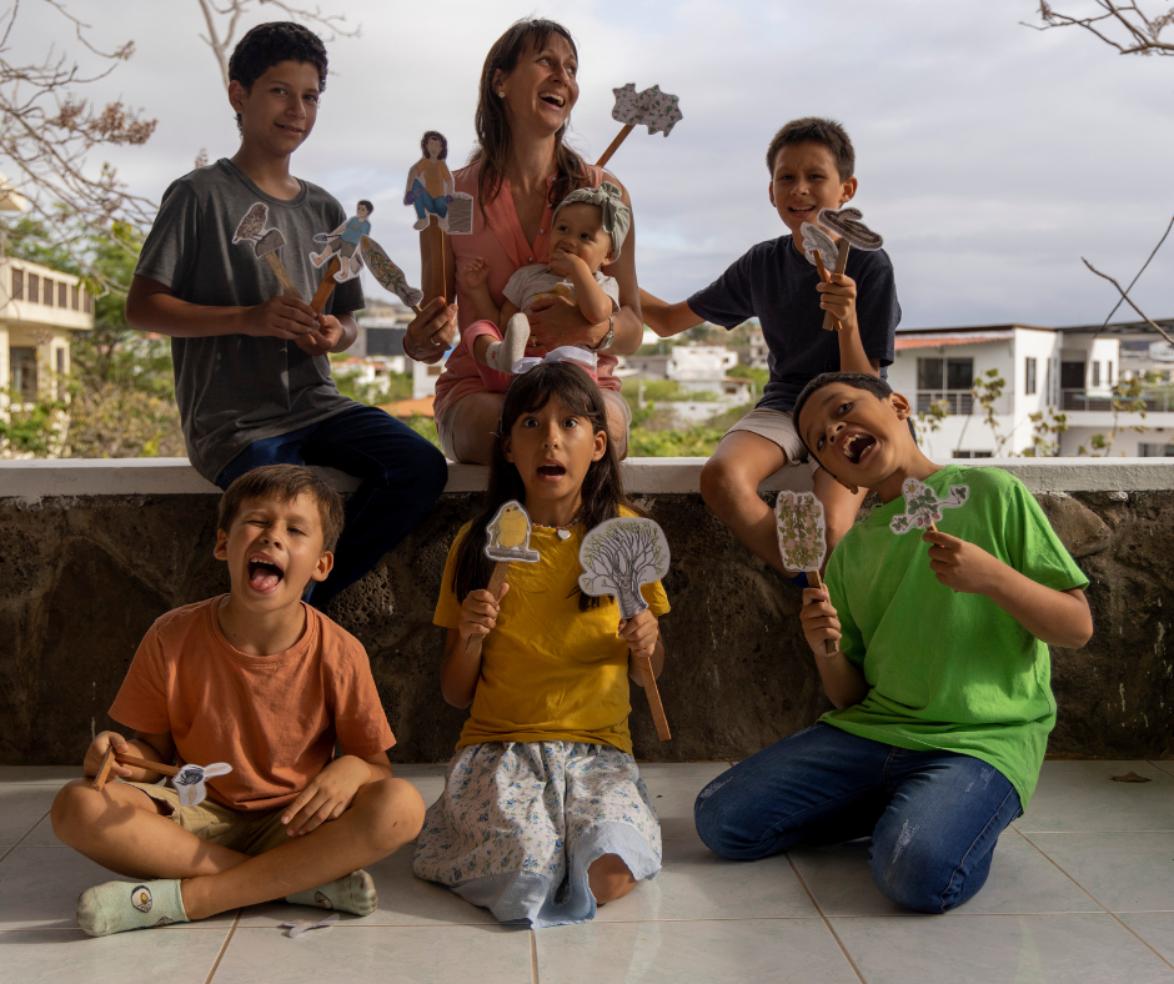
How can gardening, especially with native plants, help people to connect with nature?
Nature comprises living organisms classified into five kingdoms, the most commonly observed being animals and plants. In Galapagos, we must maintain a two-metre distance from endemic and native animals; however, we are allowed to care for endemic and native plants as long as we contribute to their conservation. Thus, we cannot directly look after a sea lion, but we can directly conserve a Darwin’s Lecocarpus plant.
These endemic plants (some found only on San Cristobal) help local gardens thrive by attracting pollinators and improving soil quality. Not only have we observed these plants with teachers, families and students, but we have also created magical realism books to better understand how island plants and animals coexist, helping and hindering one another. Our organisation uses process and impact evaluation tools to actively improve the projects’ effectiveness and to measure results. We are encouraged to see that the majority of participants strengthen their community conservation ethic, volunteering their efforts to care for endemic plants.
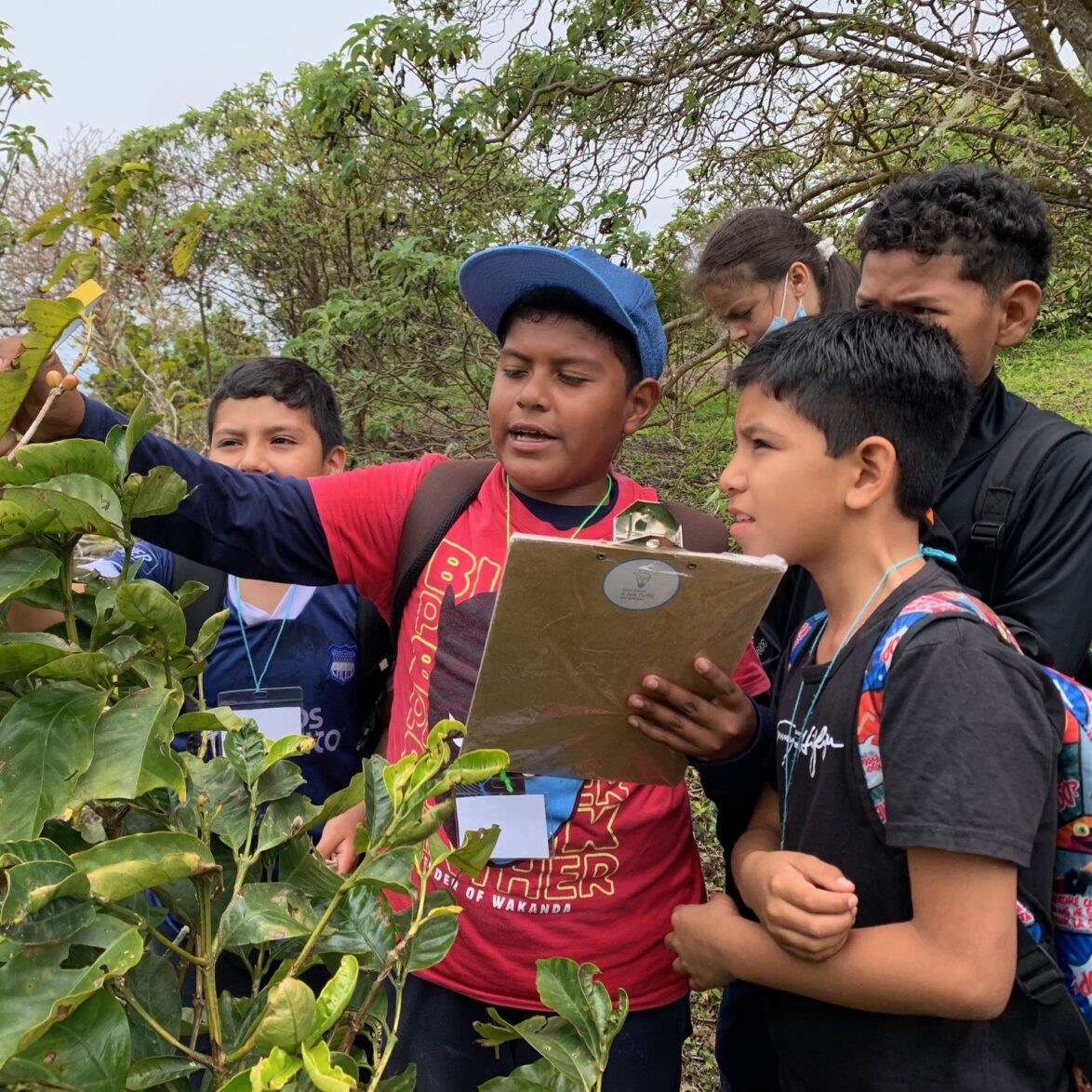
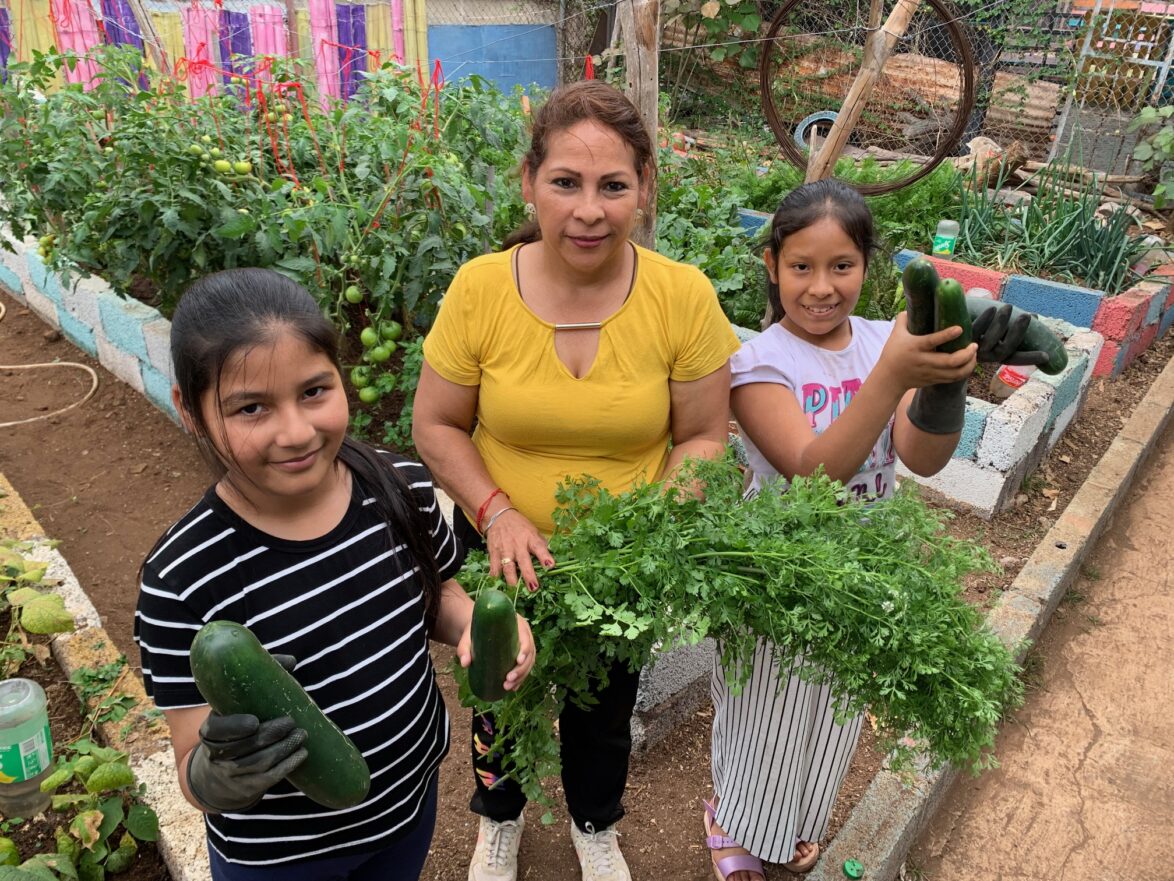
Education 4 Nature Galapagos
Learn about the project and the work being done to promote environmental sustainability, wellbeing and food security.
What drew you to working in Galapagos and on the Urban Family Gardening project?
I first came to Galapagos on a Fulbright scholarship from the US-Ecuadorian governments in 2005. My project, supported by my advisor, Dr. Diego Quiroga of the Universidad San Francisco de Quito, was to research how education can improve sustainability. After meeting my husband, Geovanny Sarigu, who manages Hacienda Tranquila, a sustainable ranch on San Cristobal, we decided to stay on the island to develop education programmes focused on sustainability.
The Urban Family Gardening Project grew from assessed needs within our community and from local educators. The project aims to create activities that contribute to student’s educational needs and strengthen a community conservation ethic.
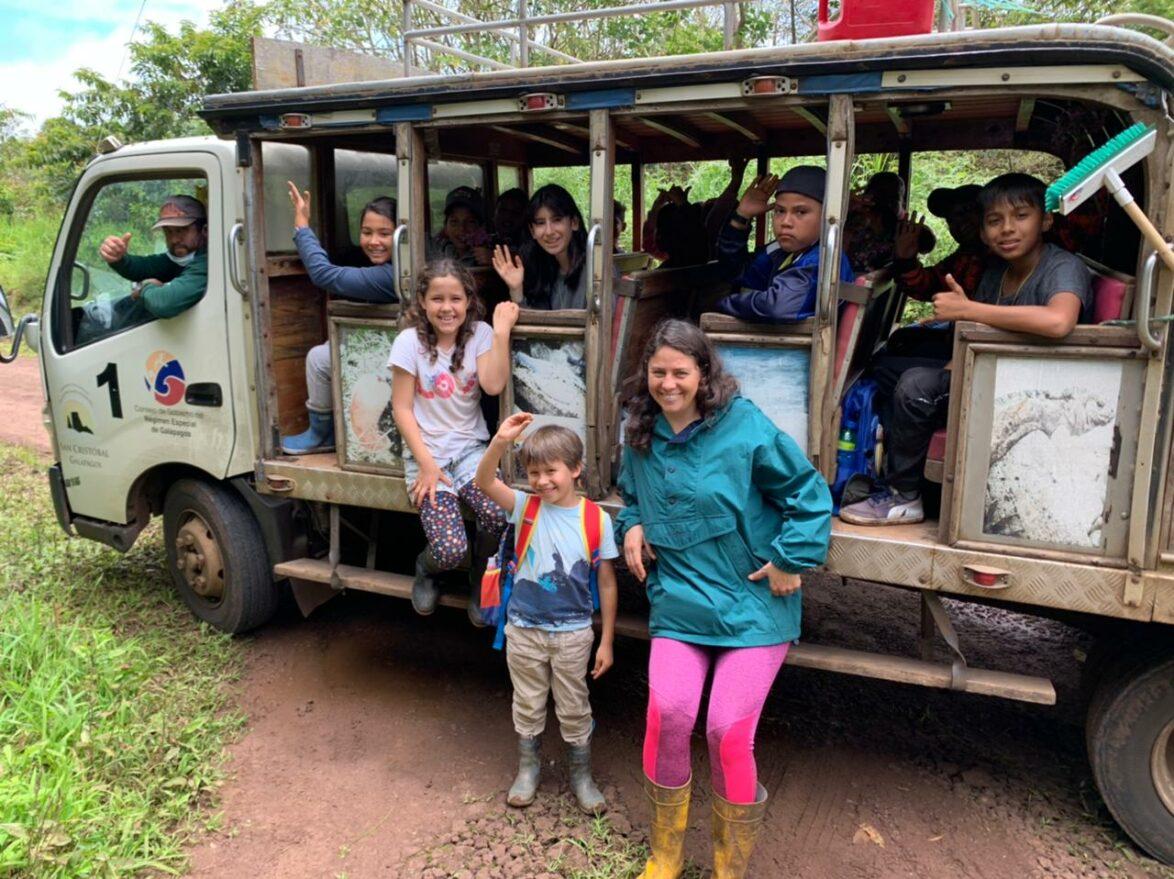
What’s one piece of advice you would give to someone just starting their career in conservation?
Use an anthropologist´s perspective: remove judgment and work alongside the people who live in the environments you want to conserve. By maintaining empathy, respect and a gradual understanding, you can help structure initiatives that respond to human needs and connect communities with nature. I believe that only through this process can we effectively conserve nature.
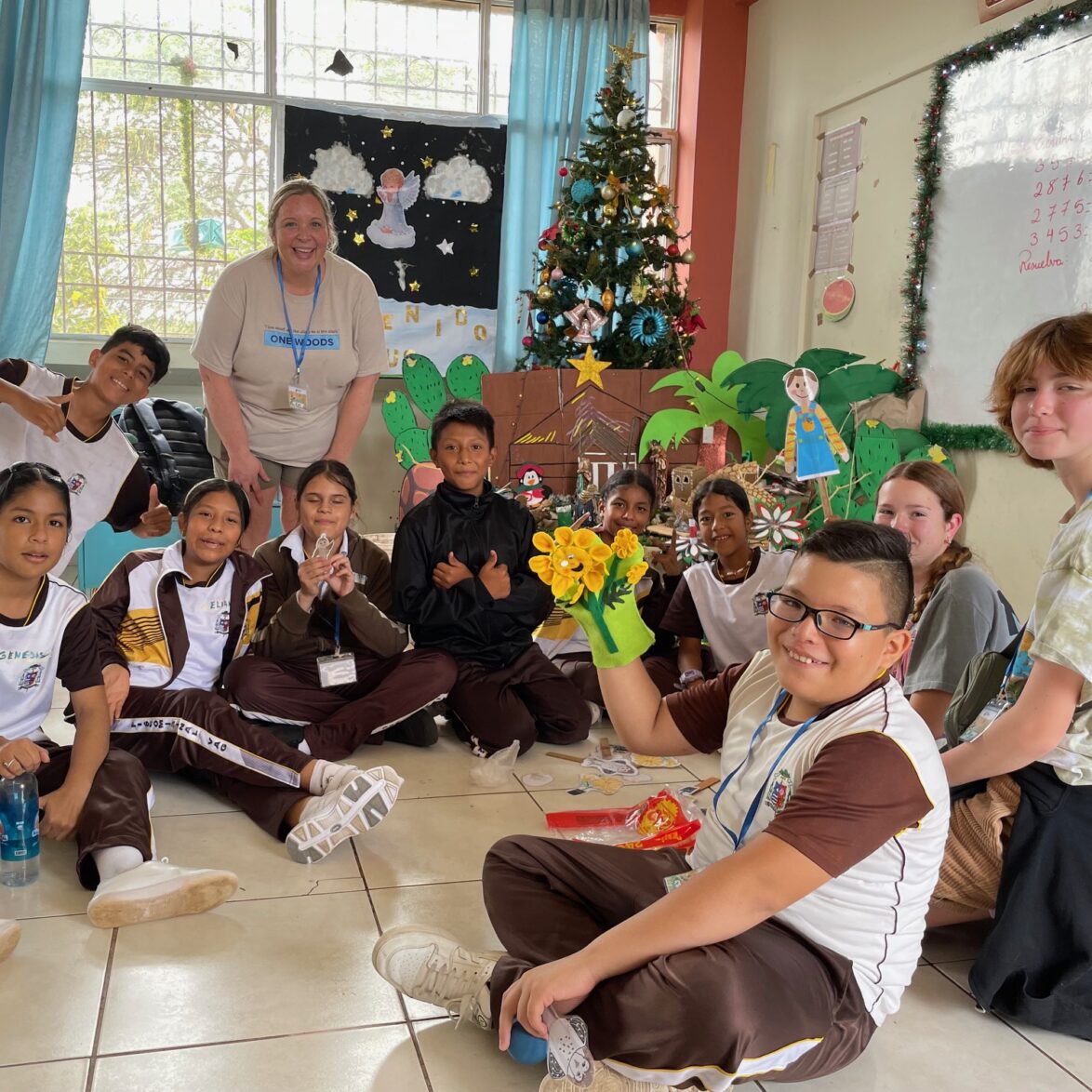
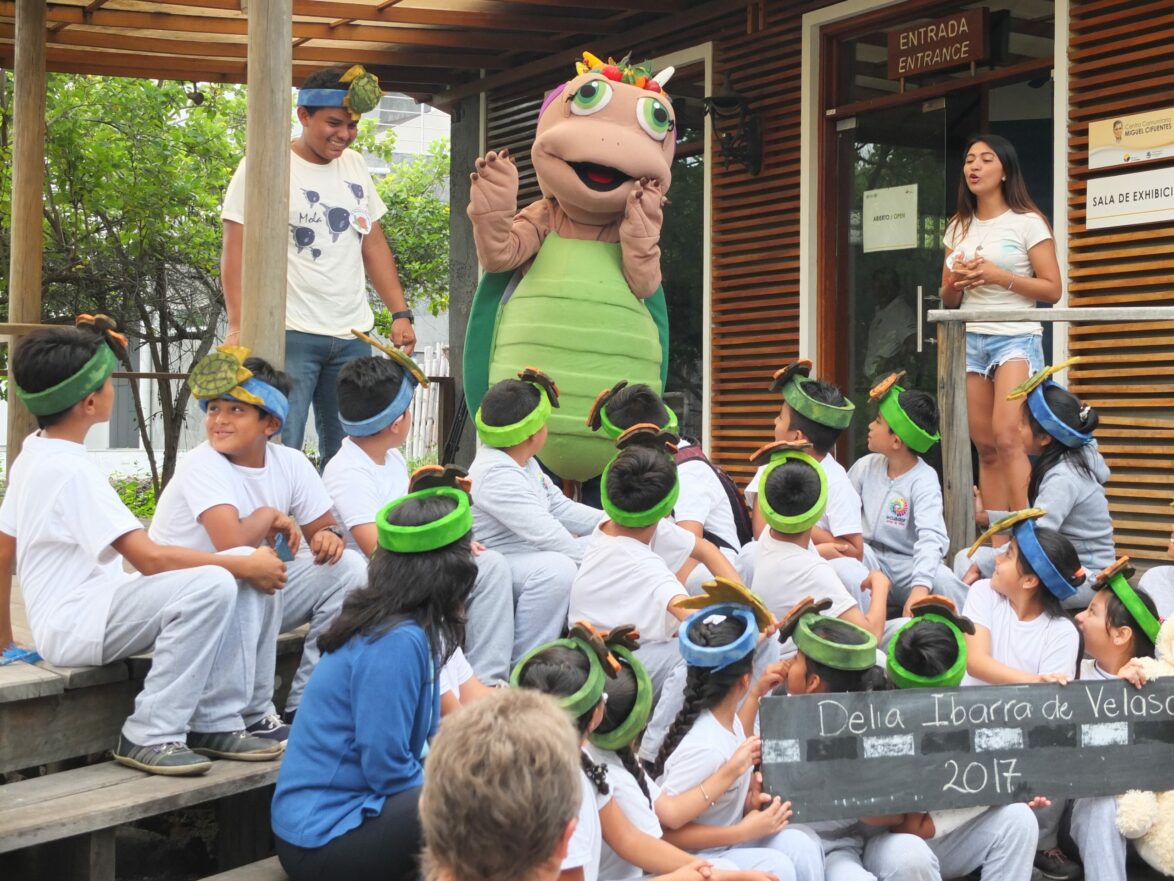
The power of environmental education
Learn all about the education and outreach projects we support in Galapagos
What is your favourite Galapagos species and why?
It’s tough to pick one favourite, so I will choose one animal and one plant. As a permanent resident of San Cristobal, I adore our endemic sea lions (Zalophus wollebaeki) that you can see lounging on the beaches and hear serenading you throughout the day. As alluded to above, I also have a special connection with the endemic Darwin’s Lecocarpus plant (Lecocarpus darwinii) for her year-round dainty yellow flowers and imaginary character “Letty” in our youth literature Enchanted Adventures book series. Ilenya Robalino, a member of the Education 4 Nature Galapagos board and I created this series in 2021 and have since published three books.
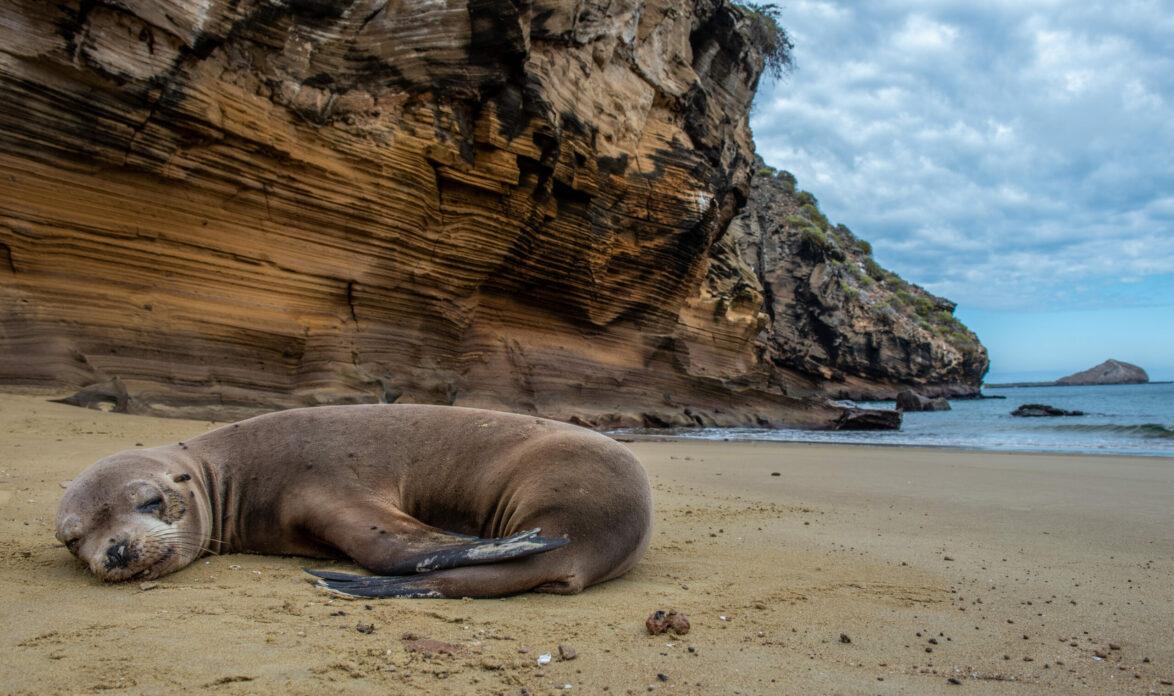
By maintaining empathy, respect and a gradual understanding, you can help structure initiatives that respond to human needs and connect communities with nature
How can you help
Ways to support our education and outreach work in Galapagos include becoming a member, attending an event, volunteering or buying a donation gift card from our shop.
Related articles

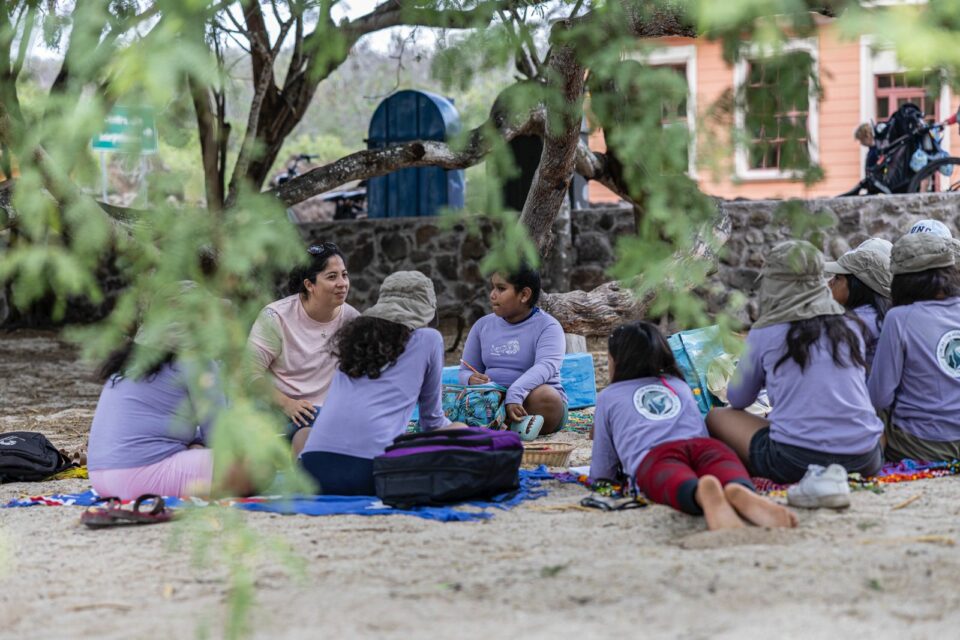
Gills Club: Empowering young women in Galapagos
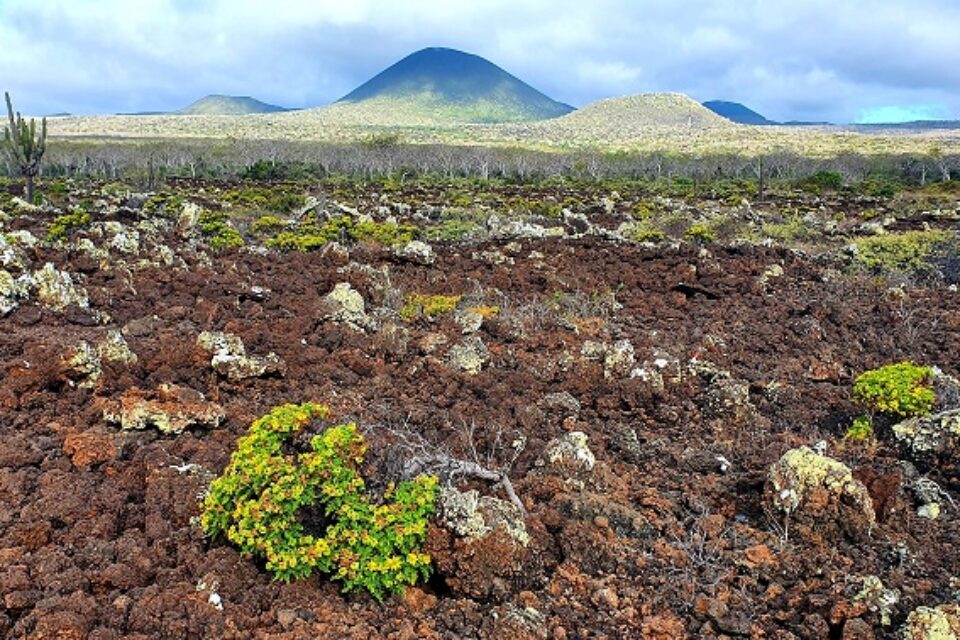
Environmental education on Floreana: Supporting island restoration
